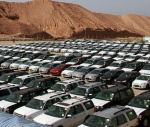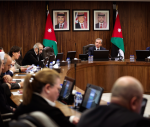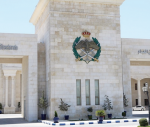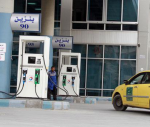You are here
Turkey’s ‘zero problems policy’ becoming a ‘problem policy’
Sep 17,2014 - Last updated at Sep 17,2014
The election of former Turkish prime minister Recep Tayyip Erdogan as the country’s president and his appointment of former foreign minister Ahmet Davutoglu as prime minister has made it all the more difficult for Ankara to cooperate with the coalition against the Islamic State (Daesh).
These two men are the architects of Ankara’s policy of fostering the revolt against Syria’s government by all means no matter what the consequences for Turkey or the wider region.
Under their policy, thousands of jihadists from North African and Western countries, as well as from the Caucasus, have crossed Turkey to enter Syria and, more recently, Iraq.
At least 3,000 Turks joined Daesh and Al Qaeda’s official Syrian offshoot, Jabhat Al Nusra, and scores of Turkish families have gone to Raqqa to live under Daesh rule.
The flow of funds and arms to Daesh fighters is through Turkey. Ankara also permits Daesh jihadists to cross into Turkey to escape government forces and rivals, and for medical treatment, rest, recreation and shopping.
Daesh fighters’ families live in Turkey. Daesh also smuggles stolen oil from Syrian and Iraqi fields into Turkey where it is sold cheaply on the black market, and revenues are used to finance Daesh activities.
Little wonder that Ankara has been reluctant to allow the US to use the massive NATO airbase at Incirlik to mount attacks on Daesh targets in Iraq.
Writing in The Daily Beast, Thomas Seibert points out that Turkey is a “prime location” from which to “hit the extremists next door. But [Ankara] prefers not to”.
Instead, Ankara has adopted a “low profile role” which is “undermining the [US] strategy”, he says.
The pro-government Turkish newspaper Yeni Safak has characterised Ankara’s approach as “passive”.
Turkey said it would allow its bases and airspace to be used for “humanitarian” missions and provide “logistical support”, such as intelligence flights and rescue missions for downed US pilots.
Ankara claims it must keep a low profile because of the 46 Turkish citizens, some diplomats and their families, taken hostage by Daesh at the country’s consulate in Mosul.
However, this is just an excuse for sitting on the fringes of the coalition while, on the ground, remaining a partner of Daesh.
Before the 2011 Arab Spring uprisings, Turkey had adopted a “zero problems with neighbours policy”. This policy contrasted with its pro-Western, anti-Soviet stance, adopted during the Cold War.
Non-Arab regional powers Turkey and Iran under the shah were also allied to Israel, alienating themselves from their Arab environment.
The collapse of the Soviet Union in the late 1980s, did not change the Turkish approach.
During the 1991 US-led war on Iraq, the Balkan wars, and the conflict in Afghanistan, Turkey, the sole regional NATO power, lined up firmly with the US and Europe. However, after the rise to power of Erdogan’s Justice and Development Party (AKP) in 2002, Ankara followed a two-track policy.
On one hand, it pursued its bid to join the European Union, on the other, it tried to develop a role for itself in this region by proclaiming the “zero problems” policy, designed by Davutoglu.
Turkey reached a free trade agreement with Syria (which was so one-sided that it harmed Syrian manufacturers) and increased trade with Tehran (under the post-shah clerical regime).
Turkey refused to permit US forces to use Incirlik during George W. Bush’s 2003 war on Iraq and became critical of Israel’s occupation and colonisation of the Palestinian territories.
These stands upset Washington, which had long taken for granted Ankara when it was ruled by secular parties and generals.
Nevertheless, the US portrayed the AKP, which has its roots in faith-based politics, as a “moderate democratic Muslim” party.
This enthusiasm for the AKP waned to a certain extent after Ankara became the first to congratulate Iran’s president Mahmoud Ahmadinejad on his 2009 re-election. Iran is, after all, a neighbour with which Turkey wanted “zero problems”.
Indeed, Ankara thought it could help ostracised and isolated Iran to rejoin the “community of nations” in spite of US opposition backed up by European powers.
The West became critical of Erdogan in 2010 after Israeli naval commandos stormed the Turkish ferry carrying pro-Palestinian activists to Gaza with the aim of breaking Israel’s siege and blockade of the coastal strip.
After 10 Turkish citizens were killed during the assault, Erdogan sharply condemned and broke relations with Israel. This, of course, was widely applauded in the Arab world and left Israel without any allies in the region (Iran promptly adopted an anti-Israel line after the fall of the shah in 1979.)
Ankara was gravely disappointed when, in 2010, the US expanded sanctions against Iran over its nuclear programme, at a time Turkey and Brazil were trying to reconcile Iran and the West by proposing a compromise — which the West refused to contemplate.
After the 2011 Arab Spring uprisings, it became clear that the AKP had a “neo-Ottoman agenda” that overrode its “zero problems” policy. The agenda involved promoting the Muslim Brotherhood, the regional party most like the AKP.
Erdogan, apparently, saw himself at the head of a revived Ottoman-style entity stretching from the Gulf to the Atlantic Ocean. Davutoglu again drew up policy to achieve this end.
The Turkish government backed the Brotherhood in Egypt when it emerged as the most powerful political party after the ouster of president Hosni Mubarak and supported exiles from the Syrian Muslim Brotherhood in their efforts to overthrow the Assad regime.
This put Turkey into conflict with Iran, which supports Damascus; with Iraq, which followed Iran’s example; with Egypt, which ousted not only Mubarak but also his Brotherhood-backed successor, Mohamed Morsi; and now with the UAE, Saudi Arabia, Jordan and Lebanon, which joined the US-led coalition against Daesh.
The US and its Western allies are also disappointed by Turkey’s low profile and are pressing Ankara to halt the flow of foreign jihadists, arms and funds into Syria and Iraq.
This will require a major effort by the Turkish army and security services, since jihadists and their networks have taken root along Turkey’s border with Syria, the main staging area for those going to Iraq.
The “zero problems” policy had become a “problem with neighbours” policy, as well as a “problem with NATO” policy.













